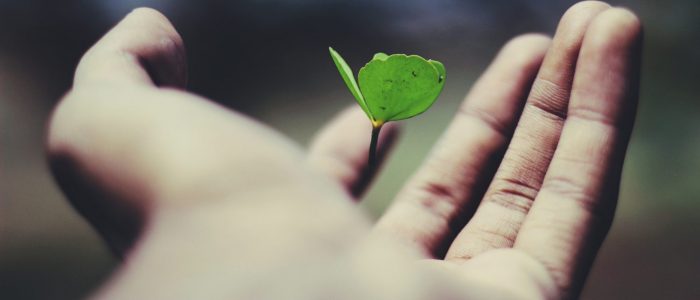Harnessing Spiritual Capital in the War on COVID-19


Charles Oham is a Senior Lecturer in Social Enterprise at the University of Greenwich.
Dave Mann, a local pastor at Bonny Downs Baptist Church, in partnership with four churches, runs a free food service that has been oversubscribed by residents who have no recourse to public funds, the elderly and vulnerable, and those waiting for their benefits to come through. He described how the joy on the faces of children and older people is evident as soon as he delivers the much-needed groceries. Sometimes the children grab it off his basket before he puts it down. The local churchgoers and residents have been donating generously to this ministry. Their Just Giving page has had over £12,000 in donations. Out of this initiative, a “service innovation” has emerged: Dave’s group realised that some people self-isolating are unable to get their groceries and are filling the gap by providing a free delivery service. Once someone remits funds, the group does the shopping and delivers at their door. This is an example of “spiritual capital” that can be initiated as the need demands and evolves in our local communities. It could be a person volunteering, befriending the lonely and those presenting with mental health issues, the use of specialist skills and knowledge, soft skills, use of buildings and the deployment of critical skills. Other religious groups are also running humanitarian services such as providing meals for NHS staff and the homeless. They are also playing a key role in encouraging their members to “stay home; protect the NHS; save lives”.
Spirituality can also lead to enterprise and innovation due to the tangible and intangible assets possessed in religion. This is known as spiritual capital or value when used to create social impact. At such a time as this, faith groups need to translate their spiritual capital into relevant products, processes and services that will aid in the fight against COVID-19 now and during the post-pandemic phase. We now know that needs are increasing in our community and government agencies are not able to cope. The incidence of domestic violence, hunger, poverty and mental health and wellbeing challenges are on a sharp increase and faith-based organisations can rise to the challenge.
Tangible assets that can be used immediately are religious buildings that can be converted into hospitals, hostels, and logistical centres. Gifts and donations of groceries to Food Banks and other initiatives to distribute to those in need will go a long way. Intangible assets are our level of faith and hope amid the gloom, provision of friendship and emotional support to those who have been affected by this pandemic through online and helpline services to those isolated during the lockdown. There is so much faith communities can do and that’s why Professor Ted Malloch describes spiritual capital as the “missing leg” that society needs. Now there are calls for leadership, innovation, management, volunteers, mental health practitioners and befrienders.
A value system that focuses on short-term gain over a long-term sustainability has obliterated the UK’s manufacturing base at a time when many countries are grappling with their own emergencies. While the world went into lockdown, we were unable to rely on the other countries for essential supplies – medicines, personal protective equipment and ventilators. Spiritual capital could have addressed these challenges by prioritising social value before financial value. A spiritual-capital orientation can tackle these challenges or give policymakers an alternative to consider for strategic planning. Currently, there is a need for PPE such as face masks and gowns, as well as other health care equipment, in the fight against COVID-19. Faith groups can play a part in addressing some of these needs if we become more strategic and agile in responding to needs in our communities.
Where do we start?
Dave did not have all the money to provide groceries for the people in need but as he started people began to support and donate. We now need more helplines than ever to deal with the trauma of this pandemic. We need more befrienders to be there for the lonely, those going through bereavement or those with exacerbated mental health challenges. The good news is that we have the human resource made up of skilful and compassionate people, as well as technology that has lowered the cost of entry in providing these services. Although basic training and safeguards need to be implemented, these can be done swiftly with the use of video conferencing.
Each faith group should have a simple and effective strategy for responding to COVID-19 challenges. This will surely make an impact because once there is a strategy based on existing need, the service will be valuable and relevant. Faith groups should audit their assets and combine and network their resources to be more effective. This is a good resource-based strategy for supporting their community. It is all about using what we have to make a difference. Spiritual capital utilisation is not about borrowing; rather, it is about stewardship and use of existing resources.
Collaboration and partnerships between faith groups and the local authorities can be a game-changer. An example is the Faith Covenant partnership between Essex County Council and the local faith sector. This covenant has been critical in developing a county-wide COVID 19 response to address social needs in Essex. This initiative is highly commendable and should be replicated around the country.
Faith groups need to create a robust platform that enables their members to have the agency to initiate innovative services and all it takes is a listening ear and being there for the innovators. They can also enable their members to leverage resources to contribute to the fight against COVID-19. This can be done by faith groups being more intentional as resource hubs and signpost centres for their members.
If we do not rise to the challenge now, we will lose our communities’ social cohesion and it may take time to recover. Let us not accept any new normal that stops us from using our spiritual capital and values. This is no time to do nothing, it is time to be practical and demonstrate leadership by doing more for the community to save lives.
Please get in touch with FaithAction if you would like to know more about how to adopt the Faith Covenant.

